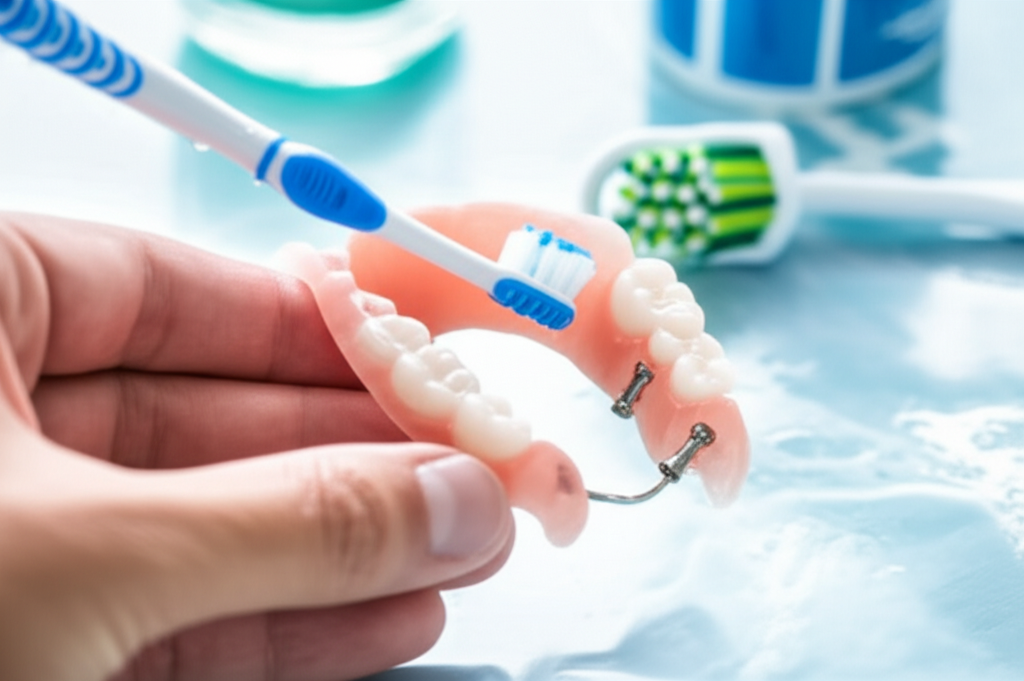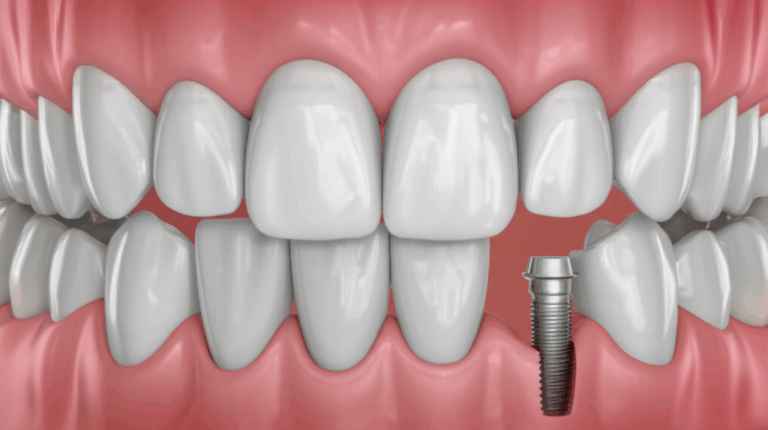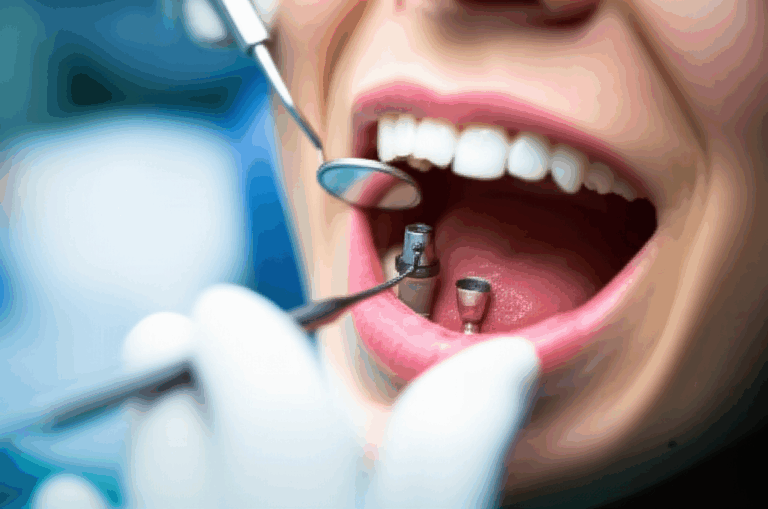
Mastering Snap-In Dental Implant Cleaning: My Complete Home Care Guide
Table of Contents
- Step 1: Removing Your Snap-In Dentures
- Step 2: Cleaning Your Denture (Prosthesis)
- Step 3: Cleaning Your Implant Sites
Outline Overview
- Introduction to snap-in dental implants and why keeping them clean matters
- My personal step-by-step daily cleaning routine
- The best tools and products I use
- Mistakes I’ve made (so you don’t have to)
- What happens at professional checkups
- Signs you need to call your dentist
- My parting advice for lasting oral health
Introduction: The Importance of Snap-In Implant Hygiene
I still remember the day my dentist clicked my new snap-in dentures into place. I was super happy—and also a bit worried. I wanted a smile I could be proud of, but I didn’t really know how important it would be to keep these new teeth clean.
If you’re in the same spot—maybe you just got your snap-in dental implants, or you’re trying to keep them nice—this guide is for you. Snap-in implants (sometimes called removable overdentures) are a great choice, but they do need regular care.
In my own experience, cleaning is about more than just fresh breath. Here’s what I learned is really important:
- Stopping infections: That’s a fancy way of saying you want to avoid gum problems around the implants.
- Keeping them fitting well: Clean implants and dentures last longer, fit better, and feel nicer in your mouth.
- Good mouth health: Less buildup on your teeth means fewer problems later.
- Saving money: Implants cost a lot. Taking care of them means you don’t have to spend more later.
Daily Home Care Routine: Step-by-Step Guide
When I first got my new teeth, I was excited—but then I realized cleaning them every day wasn’t something I could skip. Here’s how I keep my snap-in dentures and implants in great shape. It only takes a few minutes, but it’s really worth it.
Step 1: Removing Your Snap-In Dentures
If I’m being real, the first times I took out my dentures, I was awkward. You want to take them out carefully. Here’s what I do—put both thumbs on the front of the denture and push up, maybe rocking side to side if you need to. Don’t use anything sharp or force them. Those little parts (like Locator abutments or O-rings) are tough but can break if you’re rough.
Tip: I always take mine out over a towel or a bowl of water. That way, if I drop them, they won’t break.
Step 2: Cleaning Your Denture (Prosthesis)
Rinsing
First, I rinse my dentures with cool water. That gets rid of food and gunk.
Brushing
Now comes the main job: brushing. I use a soft denture brush (or a normal soft toothbrush if that’s all I have). Hard brushes can scratch and ruin your denture. For cleaner, I use something gentle—regular toothpaste is actually too rough and can scratch them, which makes stains and smells worse later.
When brushing, I pay close attention to the small places where the denture snaps on the implants. Food gets stuck there. I brush every part—chewing spots, the pink part, and especially the part that touches my gums.
Soaking
A few times a week, I let my denture soak in cleaning solution. The fizzing tablets made for dentures work great; they bubble out the stuff you can’t see and help clean off stains. I always check the label for how long to soak. I rinse them off really well before I put them back in.
Moist Storage
When I’m not wearing my denture, I keep it in water or a soaking solution in a denture cup. If they dry out, they can bend and not fit right anymore.
Step 3: Cleaning Your Implant Sites
Just cleaning the denture isn’t enough. You have to clean the implant parts in your gums too.
Gentle Brushing
I use a soft toothbrush and gentle toothpaste to brush my gums and the little metal implant tops sticking out of my gums.
Cleaning Between
Some days I use a water flosser (one of those things that shoots water), which helps blow out gunk and old food around the posts. Small brushes or special floss made for implants also work in the tight spots. I found regular floss doesn’t get it all, but the tiny brushes are just right.
Mouthwash
If my dentist says so (especially after surgery), I use a mouthwash with no alcohol to help fight germs. But I don’t use it too much—too much mouthwash can dry your mouth or make your gums sore.
Essential Cleaning Tools and Products
I’ve tried lots of brushes and cleaners. Here’s what really works:
- Soft denture brush: Good for cleaning but won’t scratch your denture
- Soft regular toothbrush: For your gums and implant parts
- Gentle denture cleaner or mild soap: Never use bleach, vinegar, or gritty toothpaste
- Denture soaking tablets: Help make the denture whiter and kill germs
- Water flosser: Gets stuff out from the hard-to-reach places
- Little brushes for between teeth (interdental brushes): Great for spaces around the implants and near your gums
- Denture cup or storage box: Keeps your denture wet and safe
Trying to save time or money here usually doesn’t work—cheaper or rougher stuff just makes more problems later. If you need help choosing products for special kinds of dentures, there are places like dental ceramics lab and removable denture lab that can give advice or help you find replacement parts.
Common Mistakes to Avoid
In the beginning, I made lots of silly mistakes. Here’s what I learned not to do:
- Using gritty cleaners on your denture: I tried normal toothpaste once. I scratched up my denture and now it stains easier.
- Hot water bends dentures: Hot water might sound like it cleans better, but it can mess up how your denture fits.
- Skipping days: If you don’t clean every day, gross stuff builds up fast.
- Forgetting to clean your gums and implant posts: Only cleaning the denture is a sure way to get sore gums and problems.
- Cleaning over a hard sink: Trust me, dropping your denture on the sink can break it. Always have a towel or bowl there.
- Not calling the dentist when something’s wrong: If something’s worn out or your denture feels loose, just ask your dentist. Don’t try to fix it on your own.
If you want to read more about mouth problems that might change how you clean, you can check out dental diseases for more info about things that can go wrong.
Professional Maintenance and Check-ups
Even though I clean my own dentures every day, I never miss my dentist visits. Every six months (sometimes even sooner), I go in for a check-up.
What My Dentist or Hygienist Does
- Deep cleaning of the implants and the dentures (their tools reach places mine don’t)
- Checking all the parts—O-rings, Locator caps, and the rest—to make sure nothing is broken or worn out
- Looking at my gums and bones (sometimes using X-rays)
- Giving me tips on cleaning better if they spot any trouble
- Replacing parts if needed (some brands and labs, like implant dental laboratory, give special help for fixes)
If you skip your visits, you might miss small problems until they get much bigger (and more expensive).
Recognizing Warning Signs: When to Call Your Dentist
Even if you clean every day, sometimes problems still happen. Here are the signs I keep an eye out for—and don’t wait to call the dentist if I notice them:
- Red or swollen gums around my implants
- Bleeding when I brush
- Pain or sore spots
- Bad breath that won’t go away
- Implants or dentures feel wobbly
- Cracks or stuff stuck that won’t come off
- It’s hard to put in or take out the denture
If I see any of these, I make an appointment quickly. Fixing things early is way better than waiting.
Conclusion: A Lifetime of Healthy Smiles
Taking care of snap-in dental implants might feel like a lot at first, but after a while it just turns into a habit. For me, it’s only a few minutes a day to brush, soak, and check my dentures and implants—and it’s really worth it.
The end result? My smile looks and feels as good as when I first got my dentures. My breath stays fresh. I don’t run into big problems. And I know I’m keeping my health and saving money in the long run.
The biggest thing I learned? Doing the basics every day is way more important than buying lots of fancy stuff. Get into your cleaning routine right away, and always keep your dentist involved.
If you want to learn more about keeping your mouth healthy, teeth health and dental care are good places to check out for more easy habits, not just cleaning your denture.
Here’s to keeping your smile bright—for today and for years to come.








